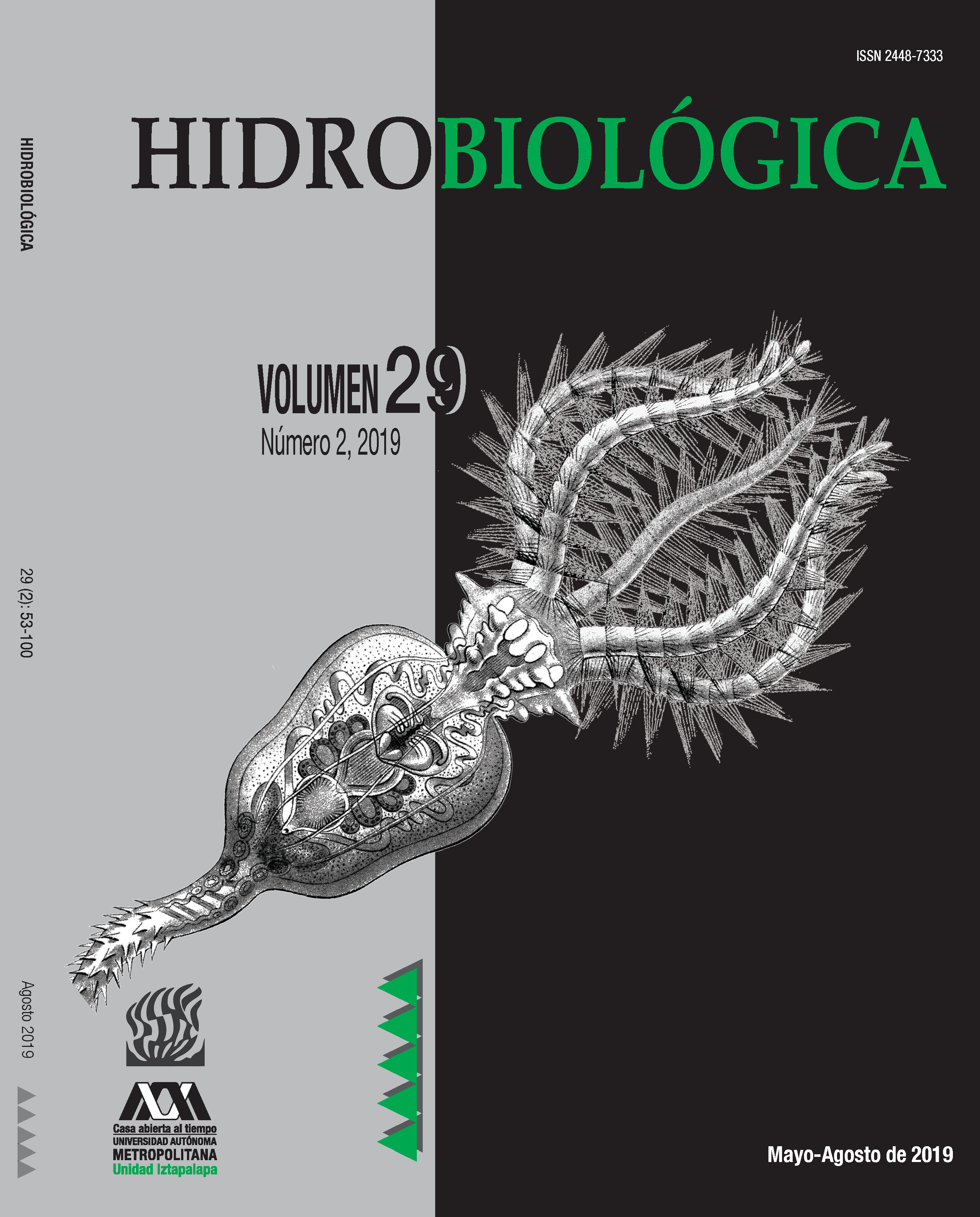Rainbow trout (Oncorhynchus mykiss) growth and digestive enzymes activity fed with autochthonous probiotics
DOI:
https://doi.org/10.24275/uam/izt/dcbs/hidro/2019v29n2/RamirezKeywords:
digestive enzymes, probiotics, rainbow troutAbstract
Background. Probiotics in aquaculture are becoming important to improve the growth of fish, because of some useful modifications of physiological process, and consequently in fish growth.Goals.To assess the effects of two autochthonous bacterial strains, with probiotics features, on rainbow trout growth and digestive enzyme activities. Methods. In this study, was tested the effect of Bacillus pumilus (BP), Bacillus sp. (BSP) and the mixture (BPSP), on the growth and the activity of digestive enzymes of rainbow trout. The autochthonous strains, previously characterized as potentials probiotics in vitro, were administered individually at 1 x 107CFU g-1food, and as a mixture, the cellular concentration 0.5 x 107CFU g-1 food each one; during eight weeks. Results. Neither of the strains used generated significative growth, compared to the control. Were the fish fed with BSP that had the best growth, respect to BP and BPSP. The highest activity of enzymes was obtained in the fish treated with bacteria, and only in the case of BPSP the fish had a significant increase (P < 0.05) of proteases and amylase activity, compared with CTRL. Under the current trial conditions, strains BP and BSP, had no positive effects on growth and enzyme activities. The mixture improved the activity of protease and amylase of rainbow trout.
Downloads
Downloads
Published
How to Cite
Issue
Section
License
Los autores/as que publiquen en esta revista aceptan las siguientes condiciones:
De acuerdo con la legislación de derechos de autor, HIDROBIOLÓGICA reconoce y respeta el derecho moral de los autores, así como la titularidad del derecho patrimonial, el cual será cedido a la revista para su difusión en acceso abierto.
Publicar en la revista HIDROBIOLÓGICA tiene un costo de recuperación de $500 pesos mexicanos por página en blanco y negro (aproximadamente 29 dólares americanos) y $1000 pesos por página a color (aproximadamente 58 dólares americanos).
Todos los textos publicados por HIDROBIOLÓGICA sin excepción se distribuyen amparados bajo la licencia Creative Commons 4.0Atribución-No Comercial (CC BY-NC 4.0 Internacional), que permite a terceros utilizar lo publicado siempre que mencionen la autoría del trabajo y a la primera publicación en esta revista.
Los autores/as pueden realizar otros acuerdos contractuales independientes y adicionales para la distribución no exclusiva de la versión del artículo publicado en HIDROBIOLÓGICA (por ejemplo incluirlo en un repositorio institucional o publicarlo en un libro) siempre que indiquen claramente que el trabajo se publicó por primera vez en HIDROBIOLÓGICA.
Para todo lo anterior, el o los autor(es) deben remitir el formato de Carta-Cesión de la Propiedad de los Derechos de la primera publicación debidamente requisitado y firmado por el autor(es). Este formato se puede enviar por correo electrónico en archivo pdf al correo: enlacerebvistahidrobiológica@gmail.com; rehb@xanum.uam.mx (Carta-Cesión de Propiedad de Derechos de Autor).
Esta obra está bajo una licencia de Creative Commons Reconocimiento-No Comercial 4.0 Internacional.


